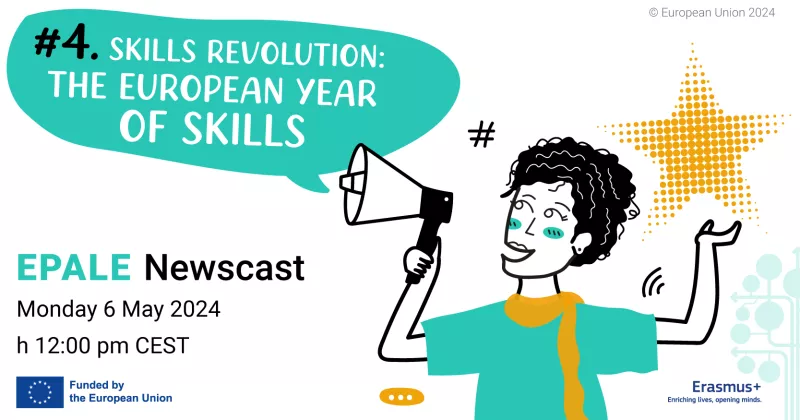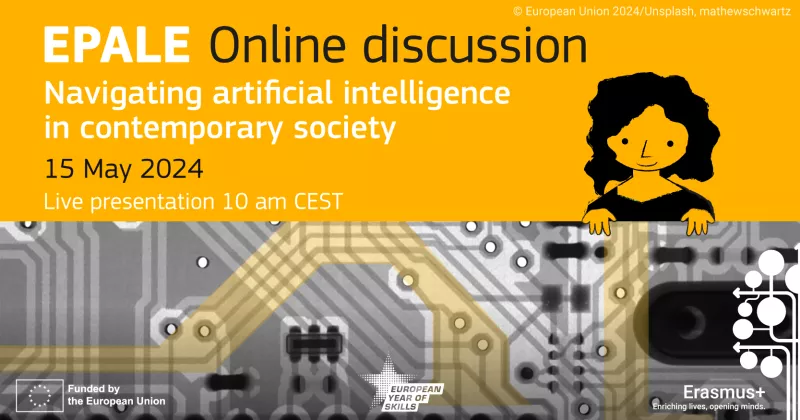Promoting Workplace learning in France (part 2)

[Translation (French - English : EPALE France]
4 avenues to explore to support a cultural revolution

Promote skills development as an objective
Many training reform measures are based on the foundation of “skills”. To achieve this objective, the range of training options available has been broadened somewhat. For all training options, whether it involves face-to-face training, e-learning or work-based training, the objective remains the same: skills development.
The acquisition, maintenance or development of skills is therefore the objective that must be emphasised in all actions to promote WBT. This is all the more important because it is probably one of the best arguments that companies can grasp or understand in order to focus on a new use: work-based training, yes, but as defined by law and therefore distinct from “on-the-job training”.
Companies won’t invest time in WL, but they will be prepared to allocate time to capitalise or transfer their skills, especially if they are shown that this training method has more operational flexibility and is faster.
Promote one solution to a problem situation
Before going all-out to promote WL, like the recognition of on-the-job training and one of the best opportunities the reform offered us, first ask companies about their problem situations (recruitment difficulties, lack of available training options, demographic context, specific production apparatus, etc.), and show an interest in their organisation in which this training method would be particularly relevant compared to or in conjunction with face-to-face training or e-learning.
In reality, it is simply a question of identifying the needs (skills-based) before proposing a service (support in implementing WBT or a financing solution).
Then offer step-by-step support: define the skills objective, establish a diagnosis, associate executive management and management, identify the HR tools available or to be created, develop a WBT process with the necessary traceability elements, involve the SO (Skills Operator) financier, etc.
There is also the question of mobilising the stakeholders to ensure that the WL method is not a one-off operation, but an action co-built with the company as a long-term investment that it will engage, independently or not, when future problem situations arise.
Promote support provided by trained professionals
Article 39 of the law of September 5, 2018, which reformed professional training, specifies that the main task of Skills Operators is to "promote the training methods provided for in the second and third paragraphs of Article L. 6313-2 in companies", that is, training options provided in whole or in part as e-learning (second paragraph), and those provided as work-based training (third paragraph).
Since the objective is skills development, we can reasonably extend the prism of WL promoters to all those who by their profession are already working on a daily basis: agencies providing actions that contribute to skills development (the famous OPACs or training providers), trainers, HR consultants, ergonomics consultants, etc.
However, too few of these are trained to support companies in implementing WL. Therefore, it will be necessary to develop WBT training options, add an extra day to the train-the-trainer course (how to master WL?), professionalise SO training advisors, incorporate WL into the programmes of operational managers who work on skills development or recommend training for their teams, etc.
Promote financial support with shared traceability rules
WL is legally recognised as a training action, it is therefore logical that it is financially supported in the same way as face-to-face training and e-learning.
Partial or total financing by Skills Operators will be primarily made for the benefit of companies with less than 50 employees (of which we saw in part 1 “WBT: issues and recognition in France” that the low-skilled workers in these companies had less access to training).
The 4 criteria of the regulatory framework* (analyse work activity, prior appointment of a trainer who can provide a tutorial role, establish reflective phases, and specific assessments of skills acquired during training) obviously do not describe the evidence that would make it possible to delineate the reality of WBT in the workplace.
What also remains to be seen is how this decree will be interpreted by all financiers of WL. To gain efficiency and speed, it is hoped that, under the impetus of collective intelligence, the 11 SOs will agree on a first list of pieces of evidence attesting to the reality of WL conducted in the workplace. This list would not be exhaustive, and would not only save valuable time in the recognition or not of a piece of evidence (according to the decree), but would also guide a very large number of professionals already prepared to engage in WL alongside SOs.
We already have feedback on the efficiency of the collective intelligence of the key players involved in training. Not so long ago, the SOs met at the EIG to create the Data-dock, which has more than 60,000 training providers registered in it, and many were added to create one of the biggest databases on the training practices of providers available in France.
So with regard to WL , why not renew this collective action to free WL of unnecessary administrative burdens that are totally contrary to what underlies this new training method?
Why not seize the moment now to initiate a new collective approach between SOs on shared pieces of evidence, for indicative purposes, on the reality of WL conducted in the workplace?
The next article, part 3, will discuss the cost and financing of WL .
Go to 1st article "WL: issues and recognition in France (part 1)" in this series.

Frank SAVANN is an HR & Training consultant and EPALE France thematic expert "Skills development, quality and work-based training"
*Decree No. 2018-1341 of December 28, 2018, on Training Actions and the Methods of Agreeing Skills Development Actions




